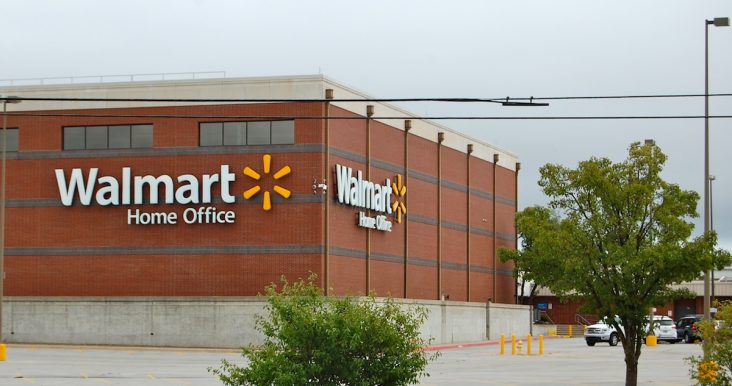Professor says part of Walmart’s FCPA settlement was ‘excessive’
by July 11, 2019 3:43 pm 1,363 views

It’s been less than a month since Walmart announced the $282.7 million settlement to a nearly eight-year probe by the U.S. Department of Justice (DOJ) and the Securities and Exchange Commission. Lost in the reporting was the weakness of the overall case which languished almost twice as long as the industry average, according to Mike Koehler, who has experience in Federal Corrupt Practices Act (FCPA) investigations.
Koehler, a law professor at Southern Illinois University on FCPA matters, told Talk Business & Politics the settlement fine was not surprising because he believes the case was overblown by the New York Times media account that he alleges strayed from the facts. He said the settlement revealed no bribery but instead involved a lack of internal controls dating back 10 to 20 years ago. He said this was a weak case as most multinational companies would have used decentralized compliance methods and third-party intermediaries during the time of Walmart’s infraction.
Koehler said the case likely took so much time – more than seven years – because regulators kept looking for sufficient evidence to bring charges and all they found was a third-party violation in Brazil and lack of internal controls in other markets.
In a surprise move, the DOJ required Walmart to hire a corporate monitor who will continue to probe inside the company for three years. Walmart hired former FBI director Louis Freeh as its corporate monitor. Koehler said the application for monitor does not fit the DOJ’s own guidelines and came as a surprise to him and others within the FCPA world.
“This is ridiculous. Walmart does not fit the guidelines for monitor appointment which is generally for repeat FCPA violations with egregious bribery offenses, not poor record-keeping and other international deficiencies found at Walmart,” Koehler told Talk Business & Politics.
In a recent podcast, Koehler interviewed Ephraim “Fry” Wernick, former assistant chief of FCPA unit at the DOJ involving monitor discussions. Wernick left the DOJ less than a month ago for private practice. In the podcast, Wernick said a monitor at Walmart doesn’t seem to fit the usual DOJ guidelines. Wernick said monitors should be applied sparingly and in cases where there has not already been considerable remediation.
“Monitors are expensive for companies and it can be terribly intrusive on business operations to people poking around,” Wernick said in the podcast.
The typical term for a DOJ monitor is two years, but Walmart was given a three-year term as part of its settlement. Wernick did not know why that was the case. He said there was obviously disagreements between the DOJ and the SEC when it came to Walmart’s settlement because the DOJ wanted the monitor. He said the difference in opinion is part of the reason it took so long to settle the case.
Walmart set aside the funds to settle the case in October 2017, an indication they knew a settlement was near, yet the case was not fully resolved for 20 more months.
“It seems the DOJ went for a pound of flesh with this settlement,” Wernick said.
Koehler said the monitor appointment for Walmart appears to be a policy-driven agenda and not rooted in the law. He said Freeh began working at Walmart nearly six months before the settlement was announced.
Wernick said by Walmart’s own admission they spent more than $900 million in compliance remediation and cooperated with the investigation for nearly eight years after the company self-reported. He said typically companies with this track record don’t need monitors.
Koehler told Talk Business & Politics that Walmart is taking on new FCPA risks with the Flipkart business in India given the tight regulatory climate. But that’s not a reason to abandon ship. He said Walmart is facing legal and non-legal risks in India with its compliance, and the safeguards put in place in recent years will likely be tested.
“When a company goes through a lengthy FCPA probe they tend to become less risk-averse and they tend to proceed cautiously in the years after the settlement. Walmart will likely be no different,” Koehler said. “The government’s case was weak against Walmart, it was overdone in the media and 3-year monitor requirement is excessive.”
